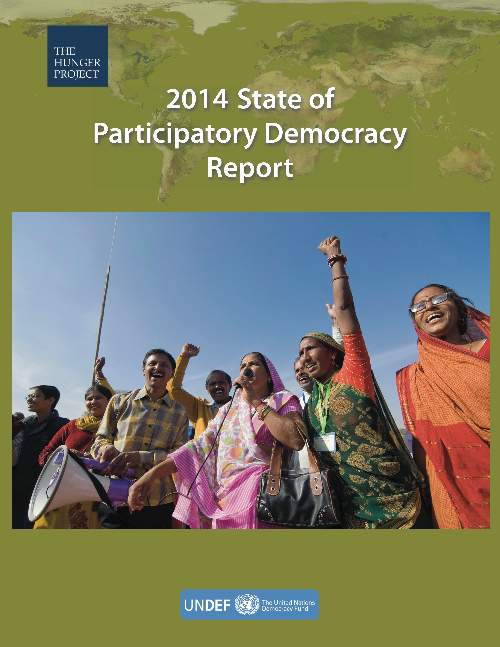
From 2012-2014, the United Nations Democracy Fund supported The Hunger Project to build a community of practice on Participatory Local Democracy. This community was mobilized to comprise dozens of local pro-democracy civil society groups in more than 70 countries.
Following a series of regional meetings in Africa, Asia and Latin America in 2012, a small secretariat team in Washington DC developed a multidimensional Participatory Local Democracy Index and solicited input from all participating countries to issue State of Participatory Local Democracy Reports during the 2013 and 2014 UN General Assembly.
UNDEF does not “renew” grants – it intends to make a catalytic investment, and with this project they succeeded. It led directly to the launch of the Movement for Community-led Development alongside the launch of the Sustainable Development Goals in 2015.
Posts on this site
-
Introducing the RDLG Bibliographic Database

We are pleased to announce that the Rural Decentralization and Local Government (RDLG) Database, with its 1600 bibliographic entries – is now part of this website. The Royal Tropical Institute in the Netherlands has, for many years, supported its development and operation within its KIT Information and Library Services. When the services closed in August 2013 due…
-
Community driven development : a vision of poverty reduction through empowerment
Abstract: The World Bank’s vision of Community Driven Development (CDD) as a key means of helping to achieve the development objectives that are becoming apparent through the Poverty Reduction Strategy Paper (PRSP) process is outlined. Author(s): World Bank Source(s): , [20] p. Published: 2000 World bank], [Washington, DC (English ISBN/ISSN: / Link: http://info.worldbank.org/etools/docs/library/209162/CDD_Africa_vision_Final.doc
-
Making decentralization accountable : a framework for analysis and empirical studies from south Asia and west Africa : paper submitted to Comparative politics
Abstract: A framework for examining the degree to which decentralizations are being carried out is described. Most decentralization efforts end up without increasing much the powers of local authorities or peoples. Since 1917, francophone West Africa has seen at least four distinct waves. Author(s): Agrawal, Arun; Ribot, Jesse C. Source(s): , 66 p. Published: 2000…
-
Decentralization, democratization, and liberalization : the history of revenue sharing in Argentina, 1934-1999
Abstract: This paper evaluates two hypotheses about the causes of decentralization in Latin America: (1) as a response to the wave of democratization that began in the 1980s; and (2) to the broader liberalization of economic development strategies. Author(s): Eaton, Kent Source(s): , 23 p., ill., graphs, tabs draft Published: 2000 University of Pittsburgh. Latin…
